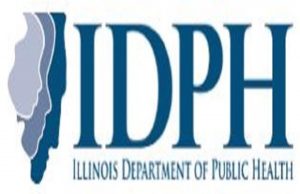Senate Republicans Introduce Legislation to Reform Prisoner Review Board
 SPRINGFIELD – Responding to a controversial decision by Governor JB Pritzker’s Prisoner Review Board (PRB) to release a convicted domestic abuser, allegedly leading to the murder of a young boy less than 24 hours later, the Senate Republican Caucus has introduced reforms to prioritize victims, depoliticize Board appointment process, and ensure accountability for PRB decisions.
SPRINGFIELD – Responding to a controversial decision by Governor JB Pritzker’s Prisoner Review Board (PRB) to release a convicted domestic abuser, allegedly leading to the murder of a young boy less than 24 hours later, the Senate Republican Caucus has introduced reforms to prioritize victims, depoliticize Board appointment process, and ensure accountability for PRB decisions.
Crosetti Brand, a dangerous felon with a history of domestic violence, is charged with stabbing his former girlfriend and killing her son as the boy attempted to defend his pregnant mother from the brutal attack. The incident has sparked outrage and prompted action from Republican leaders.
At an April 2 news conference, Senate Republicans unveiled legislation to reform the PRB by:
- Putting Victims First – Requires the Prisoner Review Board to immediately inform a victim of the early release of a prisoner, including following a hearing about whether to revoke parole. Mandates yearly training for board members on domestic violence and sexual assault.
- Putting Experience Ahead of Politics – Requires that appointees to the Prisoner Review Board must have at least 20 years of cumulative experience in the criminal justice system.
- Increasing Transparency and Holding PRB Accountable – Requires the PRB to make written notice publicly available within 24 hours of a decision to release in cases following a final revocation hearing when an individual has violated the conditions of their mandatory supervised release.
Republican lawmakers also introduced new legislation to increase penalties for violating orders of protection, aiming to provide greater protection for victims of domestic violence.
State Sen. Jil Tracy (R-Quincy) says Crosetti Brand’s case is just the latest in a string of controversial decisions made by the PRB, which has released numerous convicted murderers and violent offenders under Governor Pritzker’s watch. In recent years, members of the Senate Republican Caucus have raised serious questions about the highly political process the Governor had used to appoint controversial members to the board.
Senate Republican Legislation Addresses Teacher Shortage
 According to a recent survey conducted by the Illinois Association of Regional Superintendents of Schools, more than 90% of schools in Illinois are currently grappling with a severe shortage of teachers.
According to a recent survey conducted by the Illinois Association of Regional Superintendents of Schools, more than 90% of schools in Illinois are currently grappling with a severe shortage of teachers.
Temporary educators, such as retired teachers and substitutes, have been enlisted as a makeshift solution to fill vacancies in permanent positions. Increasing class sizes and combining classes are other methods schools have used to try to handle the growing shortage. However, these are only stopgap measures that can lead to other issues, such as less one-on-one time for teachers and students, increased behavioral issues, and less overall learning.
As part of their ongoing efforts to address this growing issue, Senate Republicans are sponsoring new legislation aimed at mitigating the teacher shortage.
Senate Bill 1487 would streamline the process for allowing a professor at a college that recently closed to become a licensed teacher.
Senate Bill 2265 creates a tax credit for participating teachers in the Teacher Recruitment and Retention Program.
Senate Bill 3634 would lower the requirement to be eligible for a substitute teacher license from 90 credit hours to 75 credits in an educator preparation program, and remove fees for retired educators attempting to get relicensed.
Senate Republicans contend that these bills are solid steps toward addressing the growing teacher crisis, but that more needs to be done to make the teaching profession accessible and appealing to qualified candidates.
Last session, Sen. Tracy voted in favor of Senate Bill 1468, which allows a person receiving a retirement annuity to work as a part-time, short-term teacher, and Senate Bill 1488, which removes a controversial assessment requirement for aspiring teachers who complete a teacher preparation program. Both measures were signed into law.
Measles Outbreak Continues
 Migrant shelters in the city of Chicago are experiencing a sudden outbreak of the contagious childhood disease measles, raising concerns about what this means for the health and safety of the entire state.
Migrant shelters in the city of Chicago are experiencing a sudden outbreak of the contagious childhood disease measles, raising concerns about what this means for the health and safety of the entire state.
Until recently, Illinois citizens had largely been unaffected by the potentially deadly disease due to advancements in immunization practices. However, the Illinois Department of Public Health has recently reported more than 50 confirmed cases of measles in the Chicagoland area, with most being connected to Pilsen migrant shelter.
Additionally, the Chicago Department of Public Health also confirmed on April 4 a small number of tuberculosis cases have been detected at migrant city shelters in the city.
While tuberculosis can be treated by antibiotics, measles cannot, with most cases affecting children younger than the age of four. The outbreak at the Pilsen migrant center began with eight cases in early March, including five children and has slowly spread to several suburbs.
Illinois Poison Center Raising Public Awareness about Household Dangers
As part of its National Poison Prevention Week outreach, the Illinois Poison Center (IPC) is warning of the potential dangers that Illinoisians face daily.
Every year, thousands of Illinois residents fall victim to accidental poisonings, resulting in numerous emergency room visits and fatalities. Poisoning and overdoses have claimed more lives than car crashes and firearm incidents combined, being the number one reason for injury related deaths for residents ages 25-64. In 2023, IPC handled more than 72,000 cases, solving 92% of them over the phone.
The IPC is working to raise awareness about the risks of potential poisoning and encouraging residents to practice prevention measures. Household items such as cleaning products, medications, and even certain plants can pose serious risks. The IPC reminds people to store these items out of reach of children and pets, and to ensure proper labeling and storage to minimize the risk of accidental exposure.
Calling the IPC’s helpline at 1-800-222-1222 is the fastest way to seek help about poison exposure and calls are confidential. Visit the IPC’s website to learn more about ways to keep people of all ages safe and help prevent poisonings.
